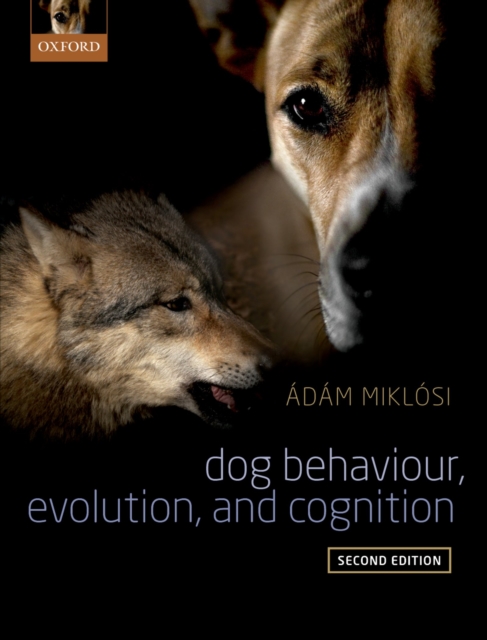
Dog Behaviour, Evolution, and Cognition PDF
by Adam Miklosi
Description
This is the first book to collate and synthesize the recent burgeoning primary research literature on dog behaviour, evolution, and cognition.
The author presents a new ecological approach to the understanding of dog behaviour, demonstrating how dogs can be the subject of rigorous and productive scientific study without the need to confine them to a laboratory environment. This second, fully updated edition of Dog Behaviour, Evolution and Cognition starts with an overview of the conceptual and methodological issues associated with the study of the dog, followed by a brief description of their role in human society.
An evolutionary perspective is then introduced with a summary of current research into the process of domestication.
The central part of the book is devoted to issues relating to the cognitive aspects of behaviour which have received particularattention in recent years from both psychologists and ethologists.
The book's final chapters introduce the reader to many novel approaches to dog behaviour, set in the context of behavioural development and genetics.
This second edition recognises and discusses the fact that dogs are increasingly being usedas model organisms for studying aspects of human biology, such as genetic diseases and ageing.
Specific attention is also given in this edition to attachment behaviour which emerges between humans and dogs, the importance of inter-specific communication in the success of dogs in human communities and the broad aspects of social cognition and how this may contribute to human-dog cooperationDirections for future research are highlighted throughout the text which also incorporates links to human and primate research by drawing on homologies and analogies in both evolution and behaviour.
The book will therefore be of relevance and use to anyone with an interest in behavioural ecology including graduate students of animal behaviour and cognition, as well as a more general audience of dog enthusiasts, biologists, psychologists, veterinarians, and sociologists.
Information
-
Download - Immediately Available
- Format:PDF
- Pages:416 pages
- Publisher:OUP Oxford
- Publication Date:11/12/2014
- Category:
- ISBN:9780191045714
Other Formats
- EPUB from £33.99
Information
-
Download - Immediately Available
- Format:PDF
- Pages:416 pages
- Publisher:OUP Oxford
- Publication Date:11/12/2014
- Category:
- ISBN:9780191045714






